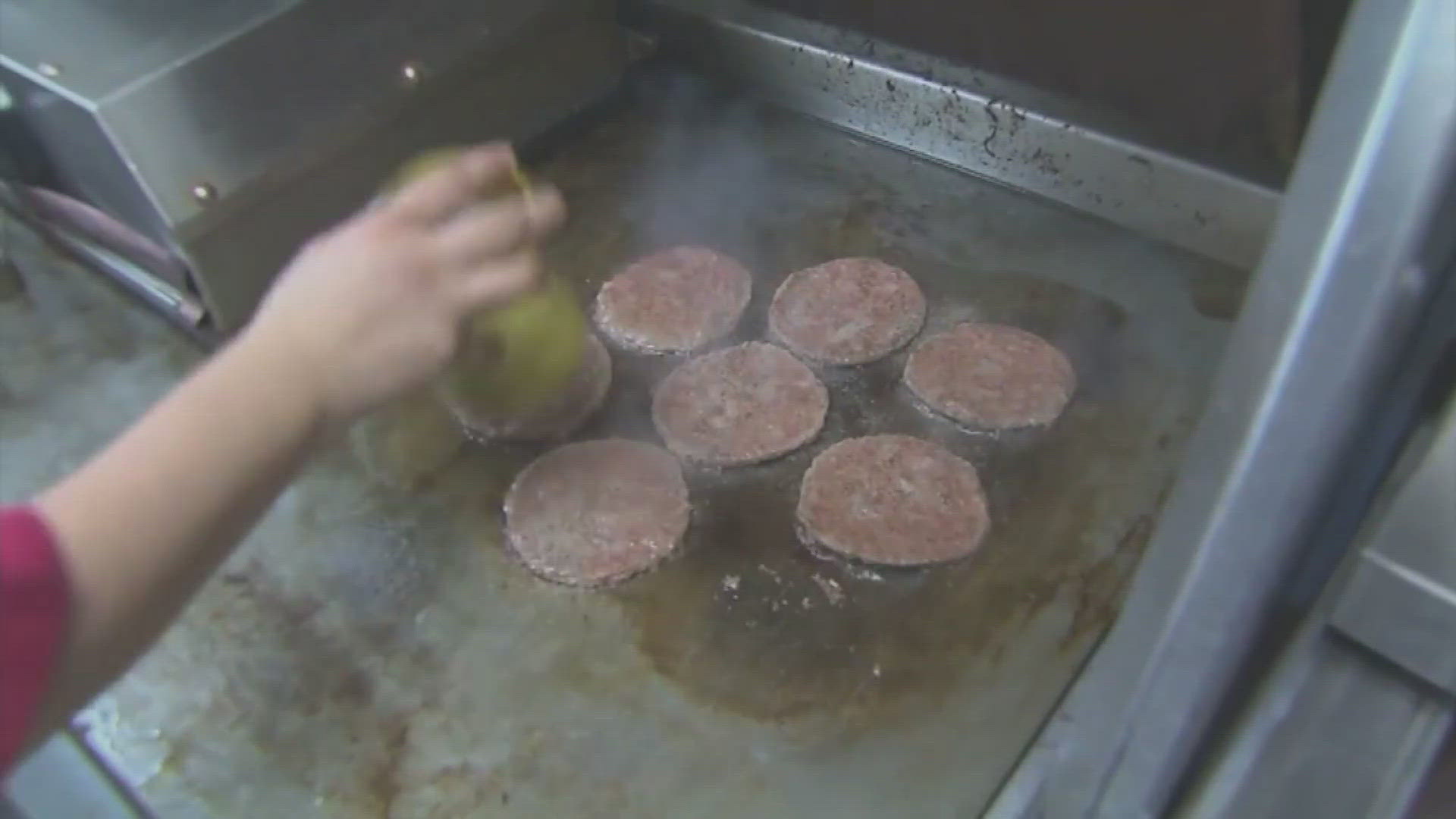SACRAMENTO, Calif. — Proposition 32 – on California voters’ ballots this fall - would have raised the state’s minimum wage for most workers from the current $16 per hour to $18.
The Associated Press called the race on Tuesday evening, with a slim majority voting “no” on the increase.
“This would have made things terribly worse,” said John Kabateck, the California state director for the National Federation of Independent Business, which represents some 13,000 small businesses across the state.
His organization opposed Prop 32, saying raising the state minimum wage for most workers to $18 per hour would have resulted in higher costs for small businesses and, as a result, higher prices for consumers.
He points to a state law that went into effect back in April, which raised the minimum wage specifically for fast food workers at larger chains to $20 dollars an hour. Critics say that has led to higher prices on the menu and made it harder for these chains to do business in the state.
“What we have seen with the fast food industry — the rising prices, the job layoffs, the small businesses leaving California — what we've seen is voters saying, ‘Look, whoa, whoa, let's push the pause button.' We've seen what happened with fast food. We don't need this to happen with groceries, other small businesses, retailers and — again — consumers.’ And I think that voters saw through that,” Kabateck said.
Saru Jayaraman advocated for Prop 32.
“I have been fighting to raise the minimum wage in California and across the country for 22 years,” she told ABC10 Thursday.
Jayaraman is president of the non-profit One Fair Wage and director of the Food Labor Research Center at UC Berkeley.
“The cost of everything has gone up: the cost of gas, the cost of housing, the cost of food. The only thing that has not gone up is the cost of people and people's labor,” Jayaraman said. “If you suppress that one input and let everything else go up, that's what creates the affordability crisis.”
She points out Prop 32 failed by a slim margin.
“There was no real campaign around Prop 32, and it still came incredibly close, which to me is an indication of how popular the issue is, even when there's no money put behind it. So I'm definitely not deterred,” she said.
She said she has heard from some voters who thought the proposed increase to $18 was too little. Others mistakenly thought a ‘yes’ on Prop 32 would claw back the $20/hour in the fast food industry to $18/hour. She attributes that to a lack of funding in the campaign to educate voters and get the word out.
Her group now plans on working to raise the minimum wage on the local level throughout the state.
So why did voters reject the measure?
Sanjay Varshney is professor of finance at Sacramento State University. He's also founder and principal of Goldenstone Wealth Management, an independent investment management and advisory firm. He says, in part, Californians are fed up with the high cost of living and taking it out on the ruling party. In this case, that was by rejecting the California Democratic Party-endorsed Prop 32.
“They clearly are sending a signal to the government that the people don't like what the government is doing,” Varshney said.
He doesn’t think Prop 32 would have eased cost of living issues.
"These problems cannot be solved by simply raising the wages on one end because — don't forget — the high inflation we just experienced for the first time in 40 years was also partially driven by wage inflation because we were paying wages that were too high. And the reason we were doing that is because 5 million people never came back to work post-COVID," Varshney said. "There was an acute shortage, especially in the industries that are very dependent on minimum wage labor, whether it's construction, whether it's hospitality and leisure, right? The food industry is one of them. So people were already making very high wages that led to very high inflation on one hand. And now you can see wage inflation is coming down because the job openings report shows that there are as many job openings compared to the number of people who are available to fill the jobs."
He said wage inflation would have increased under Prop 32.
"By raising the minimum wage and saying that will give people the affordability: no, no, no, that's not going to solve the problem of the loss of affordability. We need to fix the issues at the policy level,” he said.
On that much, Jayaraman agrees.
“We need policy change to raise the minimum wage, so I do think the state legislature should be examining this. It's their responsibility to address the affordability crisis,” she said. “There's minimum wage. There's housing and rent control. There's price-gouging by corporations. These are all parts of the same problem. There's healthcare that continues to be a problem for so many Californians. These are all things that policymakers can and must address in this moment.”
She thinks voters sent a message: "that working people are facing an affordability crisis everywhere across the country."
This was the first time a majority of California voters rejected a statewide minimum wage increase. That's according to CalChamber, which opposed Prop 32.
WATCH ALSO:



















